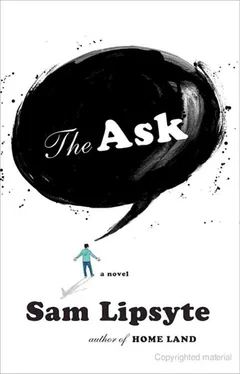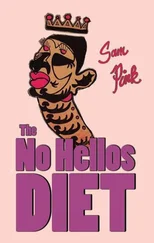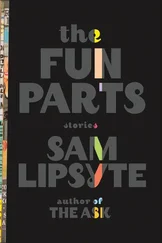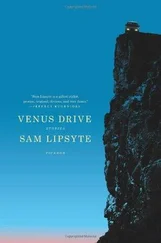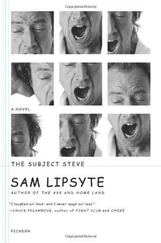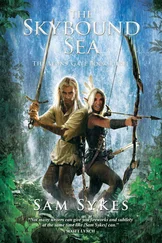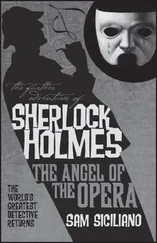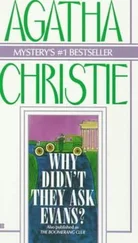Michael Florida sat on the bat guy until the police arrived.
Charles Goldfarb, who had been sitting in stunned lotus on the sofa, rose, paced, cursed, smoked.
A lot happened after that, testimonies and court appearances and a hung jury and vague threats, never made good, from townier parts of town. That summer the newspaper reported the bat guy had been shot dead outside Star Market. He was a local boy named Jamie Darling. He'd drawn down on some cops with an unloaded revolver. I think the term "suicide by cop," like "home invasion," came later, but that's what it was.
A lot happened even after all the stuff that happened after, but years later I couldn't remember most of it, at least not the legal and ethical intricacies that entertained us for many stoned hours back then.
What lingered was that frozen feeling, the paralysis, the unnerving awareness that came with it, my real-time curiosity about the nature of my cowardice, as though I were already beyond any possibility of action, just wanted to ascertain, in the moment of my acquiescence, whether I was going to ascribe it all to moral failure or grant a kinder, chemical explanation. Of course, the bat guy had a gun. Nobody ever blames you for freezing in front of a gun.
But it was still the bat that scared me.
The biochemical states of Maurice and Billy and Constance also intrigued, and then, of course, loomed the indelible fact of Purdy and Michael Florida, the aristocrat and the outcast, hurling themselves over the coffee table like some heroic tandem from the mendacious mythopoetry of another age, one of whistles and human waves and the Maxim guns ripping away. You had to either have everything or have nothing to act in this world, I mused then, to make the move that will deliver you, or cut you to pieces. The rest of us just cling to the trench's corroded ladder, shut our eyes the way I remember Bernie used to shut them, squeeze them hard, call it hiding.
Of course, this feeling, this hysterical read on agency's dispensations, was a lot of what Maura used to term, with the full-bore Midwestern irony she'd somehow absorbed near Brattleboro, Vermont, "hooey," or what Claudia might have deemed a crock of absolute shit.
Still, a final tally, a statistical breakdown of this moment, did exist.
Future Apocalypse Guru: Smidgen of composure, ineffective diplomacy, intractable whininess.
Artistic Provocateur: Ineffectual response to threat, admirable behavior under physical duress, unseemly and gratuitous assault on downed invader.
Larkish Frankfurtian: Frightened retreat into walls of self.
Marxist Feminist Who Fucked: Initial paralysis, subsequent display of courage.
Semi-Brain-Damaged Crystal Tweaker: Valiant and focused response to threat.
Ruling-Class Brat: Remarkable bravery and tactical leadership in face of threat.
Home Invaders: Bold initiative, bad intel, poor battle management.
Painting's New Savior: Utter cowardice, experienced as bodily paralysis in conjunction with what he would later describe, in an effort to steer the conversation away from actual events, a "bizarre floating sensation."
But no matter my conversational machinations, I knew the truth. Nobody ever mentioned it, of course. It meant not much. Physical bravery probably held the same value in our milieu as skill at parallel parking: a useful quirk. But the box score stayed in my wallet, or the wallet of my heart, so to speak, a smeared and origamied scrap to remind me how little I resembled the man I figured for the secret chief of my several selves.
How sick and marvelous an age this was, wherein I could boot up my desktop with a couple of names or notions in mind-Todd Wilkes, William Moraley, indentured servitude, technological advances in prosthetics, toosh dev-and plug them all into various amateur encyclopedic databases. How fucked and wondrous to siphon off such huge reservoirs of community-policed knowledge, funnel it directly into my head. Every man a Newton, a Diderot. Even now I skimmed an article about Diderot for no reason. Bernie was asleep, Maura just a few feet away on the sofa with her laptop and headphones. She might as well have been in French Guiana.
All was peachy and near utopic until I rose for a beer. At that moment the knowledge just disappeared, tilted out my earhole. I'd have to start again, or else concede my memory palace was a panic room. It would be good to exile some items and sensations, some people, even, but how to cull? I could not spare one hamburger or handjob. I wanted to recall all the cigarettes I once smoked, those afternoons I did nothing but sit on a bench and smoke cigarettes, interview myself for major art magazines. I did not want to lose the acoustics of past lovers, the grunts of Constance, Lena's clipped whinnies, or even the tremolo moans the touched-out woman on the sofa used to make. What else? Which stray events did merit deletion? What about the time I demonstrated my karate kicks to the girls in Mrs. Ardley's Chem I, felt a hot, fierce squirt in my underwear, knew I'd soon begin to stink?
What about Jolly Roger, my progenitor, the cad denied heroic measures? Could I Augean the whole heap of him away?
I'm not certain who called him Jolly Roger first, maybe one of my mother's brothers, maybe Gabe, the office machine salesman who thought there was something morose about my father, that quality I usually took for the quiet of the sneak, but the name fit for more than one reason. Jolly Roger was perhaps an emotional pirate. The treasure was your trust. Also, maybe the sneakiness did stem from sadness. There were times we'd watch television, my father and I, Roger back from his office in the city, or just returned from one of his trips, sitting in his armchair with a drink, and I'd hunch on the rug to watch his handsome moods, the flicker and drift of his face. The play of his eyes and his lips beat out any cop show or even the old Abbott and Costello movies he favored, each twitch and grimace another secret I would never know, a rye neat in a hotel bar, a cutting glance at a meeting, a winter beach somewhere far from his family, the surf's cold froth lapping the feet of a lover. You couldn't say he lived parallel lives, because that would imply he had a home life. Our house was more a transit lounge.
Sometimes, though, he'd drift out of his dream, realize where he was, get pissy, pick fights with my mother, hint at other intimacies, more than hint. He'd boast about a party in Philly, or Dallas, or Spokane, where the women were foxy (I pictured them red-furred, with quivering noses), the lady primo. Claudia might whip a skillet at the wall and the Jolly One would shrug, slouch off to the den. There were a few weeks he took to wearing sunglasses in the house. I don't believe this was a pose. I think the light hurt his eyes.
Most of the time he avoided me, or humored me, or peppered me with blandly supportive exhortations. "Keep it up," he might say, or "way to go," apropos of nothing I could discern. Sometimes if I walked into the room he'd just say, "Here comes the kid!" Invariably I'd wheel to catch a glimpse of this mysterious presence. Maybe it was clear to both of us we were never going to understand each other, not because we were complicated people, or even at loggerheads, but because of the minor obligation involved. I really couldn't blame him. I knew what churned inside me. It was foul, viscous stuff. It wasn't meant to be understood, but maybe collected in barrels and drained in a dead corner of our lawn.
Still, if I was a study in teen toxicity, this man, as Maura would say, was a total disaster. He was my daddy, though, the man version of me, or so I thought. The few times we went bowling or burned tuna melts together or the day he taught me how to change the tire on the Dodge Charger he said could one day be mine, these were, to borrow a metaphor from Purdy's world, the great emotional-liquidity events of my youth. That they always seemed somehow artificial, cooked up to stand in for something more textured and sustainable, did not sway me from my adoration. The fakeness was fragile and exquisite. It had to be protected from people like my mother, who would judge our bond faulty, a ruse.
Читать дальше
